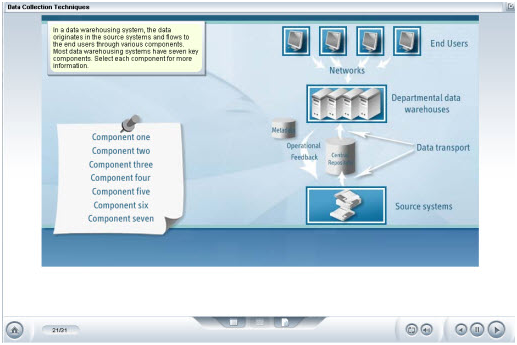 Our Six Sigma Black Belt training course for Certification seeks to improve the quality of process outputs by identifying and removing the causes of defects (errors) and minimizing variability in manufacturing and business processes. It uses a set of quality management methods, including statistical methods, and creates a special infrastructure of people within the organization ("Black Belts", "Green Belts", etc.) who are experts in these methods. Our Six Sigma Black Belt training course for Certification seeks to improve the quality of process outputs by identifying and removing the causes of defects (errors) and minimizing variability in manufacturing and business processes. It uses a set of quality management methods, including statistical methods, and creates a special infrastructure of people within the organization ("Black Belts", "Green Belts", etc.) who are experts in these methods.
This course explores the relationship between the Lean and Six Sigma approaches and their integrated application in both manufacturing and service industries. This course is aligned with the ASQ Certified Six Sigma Black Belt certification exam and is designed to assist learners as part of their exam preparation. It builds on foundational knowledge that is taught in our ASQ-aligned Green Belt curriculum.
Course Description
Six Sigma is a data-driven improvement philosophy that views all activities within an organization as processes whose inputs can be controlled to effect significant improvements in process outputs. Six Sigma uses a rigorous and systematic methodology known as DMAIC (define, measure, analyze, improve, and control) and a number of qualitative and quantitative tools for driving process, product, and service improvements aimed at reducing defects and variation. Lean is also an improvement methodology, but with a different focus, aiming to enhance process flow, reduce cycle time, and eliminate waste. Though Lean and Six Sigma originated in different places and under different circumstances, they are now largely seen as complementary methodologies rather than mutually exclusive alternatives. Companies across various industries are striving to become faster and more responsive to customers, achieve near perfect quality, and operate using world-class cost structures. You need both Lean and Six Sigma to achieve these goals.
 Training Course Includes Training Course Includes
 Choose Online or CD-ROM Delivery Choose Online or CD-ROM Delivery
 One year 24 x 7 unlimited access to all online courses One year 24 x 7 unlimited access to all online courses
 Full Multi-Media interactive lessons Full Multi-Media interactive lessons
  Test Preps Test Preps
  Online mentoring - Instructor live access online 24 x 7 to answer any questions regarding your training Online mentoring - Instructor live access online 24 x 7 to answer any questions regarding your training
  Printable transcripts of all lessons Printable transcripts of all lessons
 Searchable topics at your finger tips Searchable topics at your finger tips
 Over 70 hours of training Over 70 hours of training
Prerequisites
Proficiency at the Green Belt level with the tools and concepts of Lean and Six Sigma and their origins as scoped in the ASQ
Six Sigma Black Belt Certification Outline
Enterprise-Wide Deployment
Lean and Six Sigma
Projects and the Black Belt Role
Leadership and Change Management
Organizational Process Management and Measures
Critical Requirements and Benchmarking
Business Performance and Financial Measure
Team Management
Forming Project Teams
Motivation and Communication in Teams
Managing Six Sigma Team Performance
Define
Using Voice of the Customer
Developing Project Charters and Tracking Six Sigma Projects
Measure
Process Characteristics
Data Collection and Measurement
Six Sigma Measurement Systems
Basic Statistics and Graphical Methods
Probability
Process Capability
Analyze
Correlation and Regression Analysis
Multivariate Analysis and Attribute Data Analysis
Hypothesis Testing Concepts and Tests for Means
Tests for Variances and Proportions, ANOVA, and Chi-square Tests
Nonparametric Tests in Six Sigma Analysis
Non-Statistical Analysis Methods
Improve
Designing and Planning Experiments
Conducting Experiments and Analyzing Results
Improvement Methods and Implementation Issues
Control
Statistical Process Control (SPC)
Non-Statistical Control Tools and Maintaining Controls in Six Sigma
Sustaining Improvements and Gains from Six Sigma Projects
Design for Six Sigma (DFSS) Frameworks and Methodologies
Common Design for Six Sigma Methodologies, Design for X, and Robust Design
Special Design Tools in Design for Six Sigma
Champion Training
Introduction to Six Sigma for Champions
Process Improvement
Projects and Project Teams
Managing and Deploying |